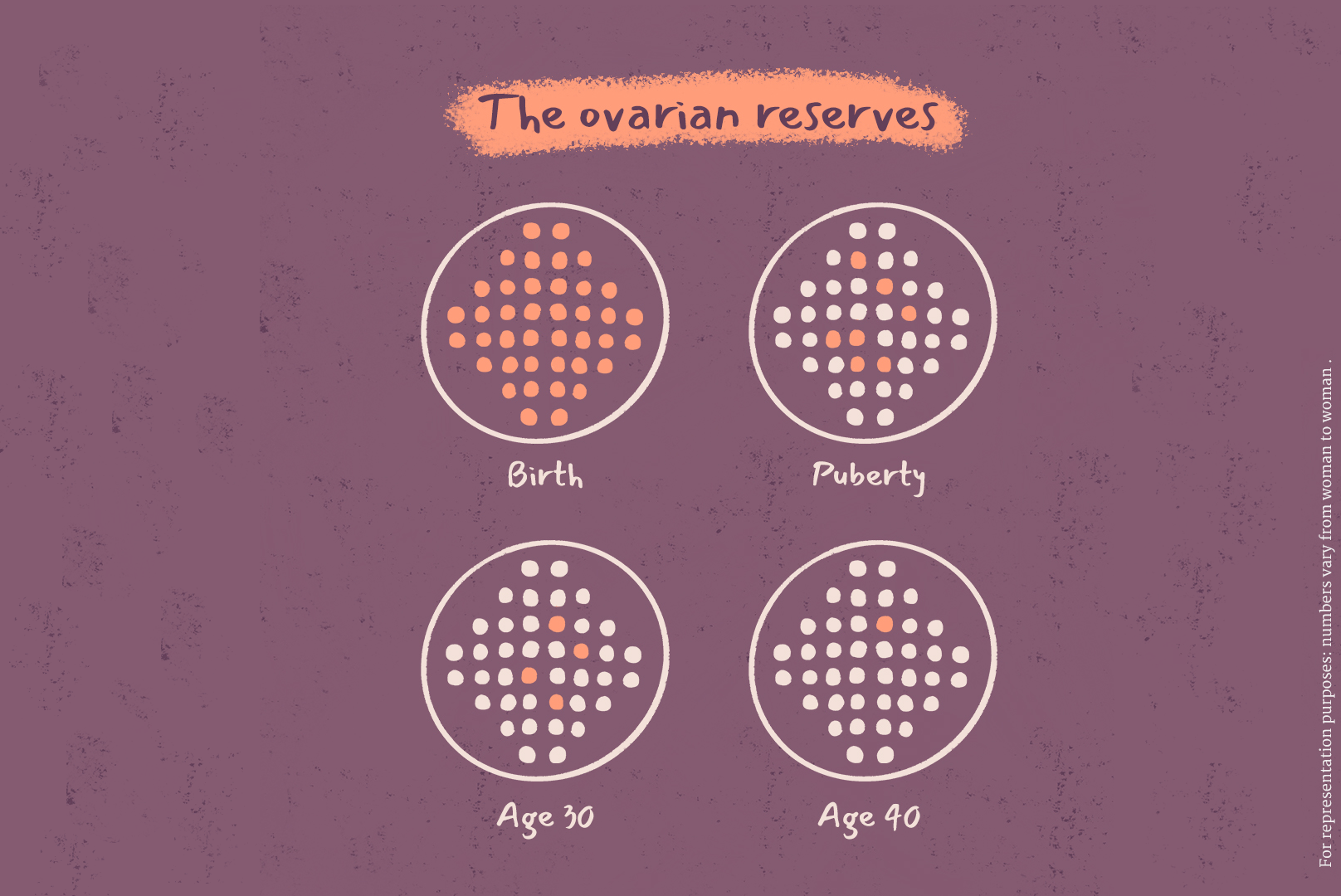In Canada, half of babies born today have a mother aged over 30, this is twice as many as in 1975. In 2019, in Quebec, the average age at childbearing is 30.82 years. The desire to have a child later on in life has been particularly marked since the beginning of the 1990s. The place of women in the job market while trying to secure a stable professional situation largely explains this increase in the average age at childbearing.
While this reality portrays a profound change in our society, we must keep in mind that it is more difficult for a couple to conceive as the mother advances in age.
The effect of age in women
Unlike men who constantly renew their sperm reserve, the eggs are limited in number. When born, a young girl has 1 to 2 million. Over the years, this number continues to decrease. A 35-year-old woman has only 12% of her ovarian reserve left, and by the time she turns 40, it is down to 3%. Female fertility therefore declines around the age of 35 and declines even more rapidly after the age of 37.

In addition to reduced ovarian reserve, age also impairs the quality of the eggs. Advanced maternal age therefore leads to an increase in chromosomal abnormalities, the risk of miscarriages, birth defects and the risk of complications during pregnancy.
The effect of age in men
The effects of age are also felt in men, but to a lesser extent. Although throughout their lives, men produce sperm, it should be noted that from the age of 30, the level of testosterone, necessary for the production of sperm, decreases each year by approximately 1%. The quality of the latter also decreases.
A 40-year-old man's sperm can contain 3 times more genetic mutations than a 20-year-old man's. From the age of 40, studies show that the rate of DNA fragmentation and decondensation is higher.